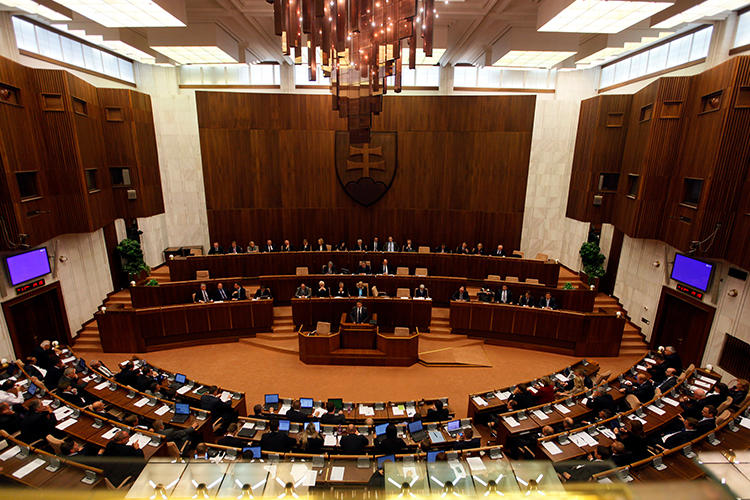Berlin, March 25, 2019 — Slovak lawmakers should not pass an amendment to the country’s press law that would expand its right of reply mandate to include politicians and public officials, the Committee to Protect Journalists said today.
On March 21, the culture and media committee of the Slovak parliament approved the amendment to the Press Act, which would require that media outlets publish replies from any politician or public official who claimed an outlet’s reporting damaged their dignity, honor, or privacy, according to local news website Bumm.sk; the measures will become law after passing a plenary session, the date of which has not been set.
“Legally mandating a right of reply forces publications to become mouthpieces for politicians and public officials,” said CPJ Europe and Central Asia Program Coordinator Gulnoza Said in New York. “The amendment would unduly interfere in the editorial independence of the media and would lead to pressure or self-censorship; the Slovak parliament should reject it.”
Slovakia’s 2008 press law already mandates a right of reply, but in 2011 the law was amended to apply only to the general public, excluding politicians and public officials, according to local English language monthly the Slovak Spectator. Media outlets that refuse to publish a reply can be forced to pay up to 5,000 euros ($5,635) in compensation, according to Bumm.sk.
The amendments were drafted by the ruling Smer party after party chairman and former prime minister Robert Fico announced his intention to end “media terror and lynching” by expanding the right of reply at a rally on December 8, 2018, according to CPJ reporting.
CPJ emailed Fico’s office for comment, but did not receive a response.
More than 400 journalists and editors signed a statement published on February 6 requesting parliament reject the amendment, which it said would enable politicians to “flood newspapers with opinions that do not fit with the facts.”
The Slovak Press Publishers’ Association condemned the amendments in a statement published on January 28.
